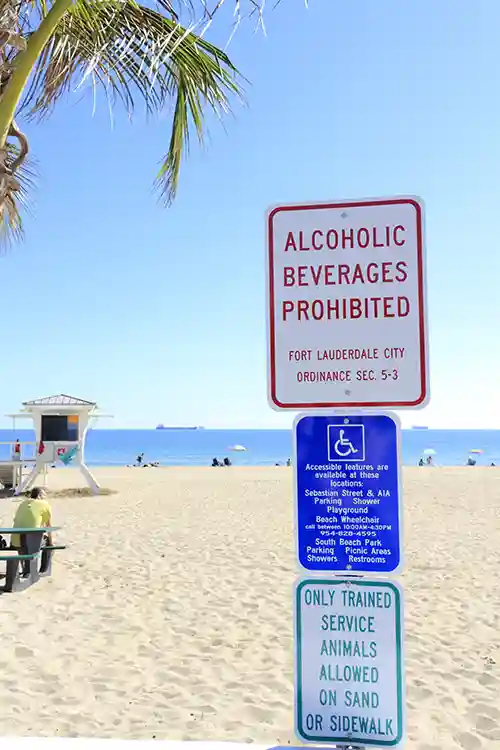
Understanding Alcohol Delivery Laws and Staying Educated
In recent years, the convenience of alcohol delivery has seen a significant rise, transforming the way consumers access some of their favorite beverages. This shift necessitates a clearer understanding, for both businesses and consumers, of the laws governing alcohol delivery. At A+ Server Education, we emphasize the importance of comprehending these regulations to ensure legal […]
In recent years, the convenience of alcohol delivery has seen a significant rise, transforming the way consumers access some of their favorite beverages. This shift necessitates a clearer understanding, for both businesses and consumers, of the laws governing alcohol delivery.
At A+ Server Education, we emphasize the importance of comprehending these regulations to ensure legal compliance and promote responsible alcohol consumption. In this article, we’ll break down these laws, providing a straightforward guide to navigating this complex landscape.
The Evolution of Alcohol Delivery Laws
The onset of the COVID-19 pandemic played a pivotal role in reshaping the regulatory landscape for alcohol delivery. As businesses faced unprecedented challenges and mandatory shutdowns, governments across various jurisdictions sought ways to mitigate the economic impact. This was particularly true in the hospitality industry.
Many states temporarily relaxed alcohol delivery laws to support businesses during such challenging times. These new rules allowed restaurants, bars and liquor stores to offer delivery and takeout services for alcoholic beverages.
This move aimed not only to provide a lifeline to struggling businesses but also to adapt to changing consumer behaviors. During this time, more people turned to home delivery services amid health concerns and social distancing measures.
In some states, the temporary policies have become permanent. This change in policy reflects a broader shift toward accommodating the demand for greater convenience. However, these new rules still maintain measures to ensure responsible alcohol consumption and sales.
Legal Framework Governing Alcohol Delivery
Alcohol delivery laws vary widely across states, reflecting local attitudes and policies toward alcohol consumption and sales. Typically, these laws cover licensing requirements, age verification, delivery hours and geographic restrictions.
For instance, in some states, a delivery service must obtain a specific license to deliver alcohol. This delivery license may differ from traditional liquor sales licenses.
Additionally, all delivery services must implement robust age-verification processes to ensure recipients are of legal drinking age. This is a critical step in preventing underage drinking.
Understanding the legal framework in your specific jurisdiction forms the foundation of a compliant alcohol-delivery operation.
State-Specific Regulations
In the United States, alcohol delivery laws are complex, with each state possessing its own set of rules. For example, California allows the delivery of alcohol under certain conditions. These conditions include requiring the delivery person to be 21 or older and to check the ID of the recipient.
Meanwhile, states like Utah have more restrictive laws, with alcohol delivery largely prohibited.
Businesses must stay informed about the specific requirements for each state in which they operate. These include permit stipulations, types of alcohol allowed for delivery and the legal times of day for making deliveries.
Challenges and Solutions in Alcohol Delivery
Navigating alcohol delivery laws presents several challenges. These challenges include keeping up-to-date with changing regulations and ensuring compliance during the delivery process.
For businesses, one solution lies in investing in training and technology. Training programs like the ones we offer equip staff with the knowledge to comply with laws and handle alcohol responsibly.
Additionally, technology solutions, such as age-verification apps, can streamline the compliance process. These measures reduce the risk of selling alcohol to minors and ensure that deliveries occur within permitted hours and regions.
Benefits of Understanding Alcohol Delivery Laws
The advantages of mastering these laws extend far beyond mere legal compliance.
Benefits for the Community
Knowledge of alcohol delivery laws fosters a safer community. This is done by ensuring that alcohol consumption and sales occur within a framework designed to minimize harm. By adhering to age verification and delivery protocols, businesses contribute to preventing underage drinking and reducing alcohol-related incidents.
Benefits for the Business
Understanding alcohol delivery laws empowers businesses to innovate within the confines of the law. Businesses are offering new services and promotions that align with consumer demands while remaining compliant. This adaptability can be a significant competitive edge in a market where consumers value convenience and legality.
Compliance with alcohol delivery laws enhances a business's reputation among customers and within the community. Customers are more likely to trust and remain loyal to services that demonstrate a commitment to legality and responsible service.
This trust translates into repeat business and positive word-of-mouth marketing, invaluable assets in today’s competitive marketplace.
Thorough knowledge of these laws also enables businesses to navigate the permitting process more efficiently, saving time and resources. It can also reduce the risk of costly fines and legal issues that can arise from non-compliance. This knowledge safeguards the business's financial health and operational stability.
Benefits for the Industry
Measurable evidence of widespread compliance with alcohol delivery laws provides a foundation for advocating for beneficial regulatory changes.
Businesses well-versed in the legal nuances can lead efforts to shape policies. They can advocate for changes that support both industry growth and consumer safety. This contributes to a more vibrant and responsible alcohol delivery ecosystem.
Navigating the Future of Alcohol Delivery Laws With Knowledge and Responsibility
The legal landscape is intricate and constantly evolving, requiring businesses and delivery services to remain vigilant and informed.
A+ Server Education emphasizes the critical role of education in navigating these sometimes murky waters. We offer comprehensive training solutions that empower businesses to operate legally and responsibly. By understanding and adhering to regulations in each jurisdiction, companies can ensure the success and sustainability of their services.
Embracing both the challenges and benefits of alcohol delivery laws paves the way for consumers to enjoy the convenience of delivery without compromising safety and legality.



